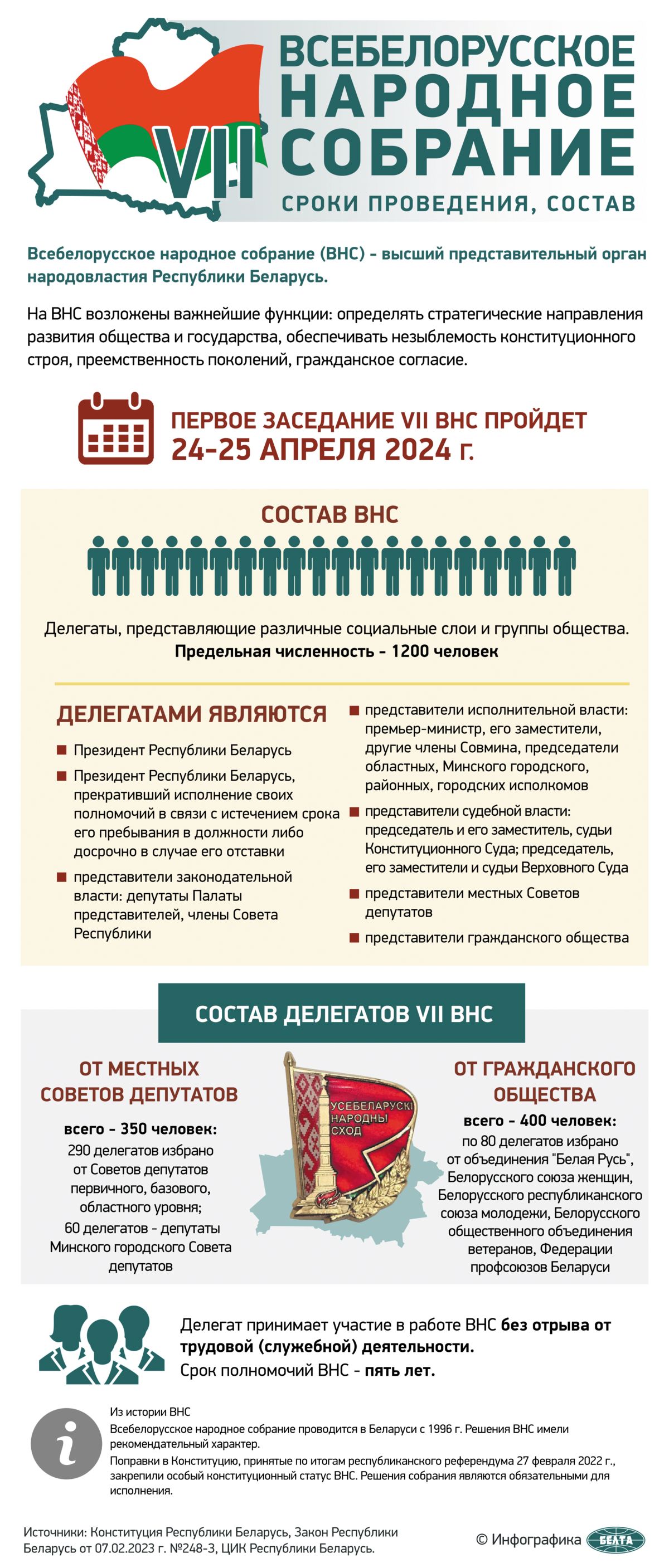Our mechanism of democracy
What is the inner meaning of giving constitutional status to the All-Belarusian People's Assembly?
Next week, a historic event will take place in the country — the All-Belarusian People's Assembly is due to convene in a new, constitutional status. The Belarusian people themselves wanted to make it so by voting in a referendum in 2022 for amendments and additions to the Constitution. On the eve of this important event, the editorial office of the newspaper “SB. Belarus Today" brought together analysts and practitioners to take a fresh look at the new political institution and outline its legal framework. The expert round table "The All-Belarusian People's Assembly as a new element of the political and legal culture of the Belarusian society" was attended by Valery Mitskewich, Head of the Secretariat of the All-Belarusian People's Assembly, Oleg Makarov, Director of the Belarusian Institute of Strategic Research, Natalia Filippova, First Deputy Minister of Justice, Sergey Sivets, Chairman of the Standing Committee of the Council of the Republic of the National Assembly for International Affairs and National Security, Elena Semashko, Deputy Director of the National Center for Legislation and Legal Studies, Valentin Starichenok, Head of the BISR Regional Policy Department, Svetlana Aleynikova, Deputy Head of the Internal Policy Department — Head of the BISR Social Studies Department, Olga Lazorkina, Head of the Post-Soviet Countries Office of the BISR Foreign Policy Department, Peter Koronevsky, Head of the Internal Policy Analysis Office of BISR Internal Policy Department.
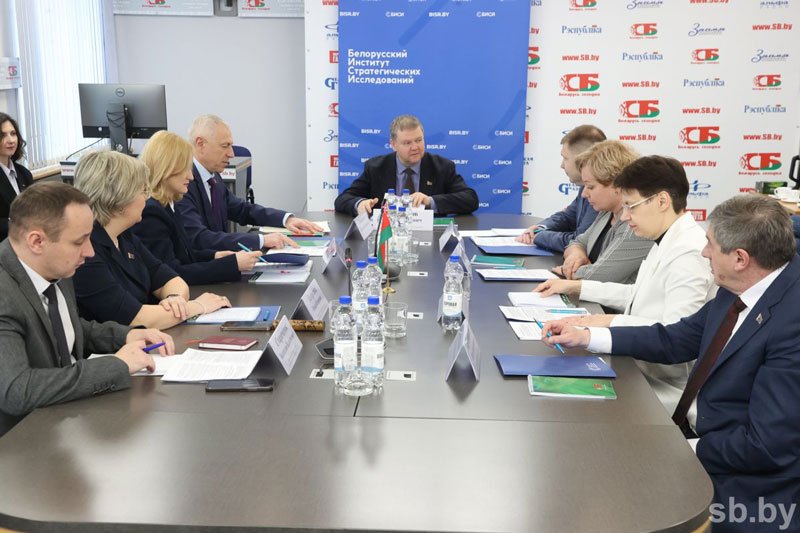
Concept to Completion
O. Makarov: Our meeting is taking place on the eve of the meeting of the VII All-Belarusian People's Assembly. All the preparatory stages have been successfully completed, a powerful information campaign has been conducted, and the involvement of the population is clear. We hear a lot in the media about the importance of the event, about delegates, and issues that we intend to discuss at the All-Belarusian People's Assembly. But our sociological measurements show that basic questions need to be answered: what is the All-Belarusian People's Assembly, who are its delegates? It is important to understand their powers and rights are, and how the seventh All-Belarusian People's Assembly differs from the previous ones. Along with these questions, I propose to discuss the conceptual essence of such a phenomenon as the All-Belarusian People's Assembly.
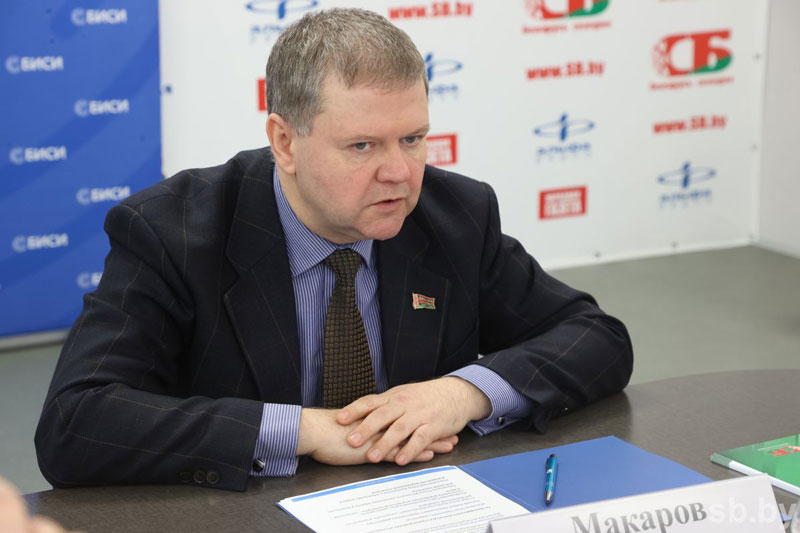
So, can we talk about the All-Belarusian People's Assembly as a new stage of political life in the country and what is its importance?
S. Sivets: I recall the period when, on the eve of the constitutional referendum, we made a large-scale systematic work through dialogue platforms, round tables, meetings with labor collectives. That was a kind of serious sociological study about the expectations of society from the further transformation of the Belarusian state, the state model that had been enshrined in the 1996 Constitution. A snapshot of opinion how much society was ready for some changes, what they should be expressed in. Because in the public and information space, these expectations were broadcast quite actively. First of all, non-governmental media, social networks, and Internet channels aggressively articulated and hammered into the mass consciousness the idea that Belarusian society requires change. But what change? At the same time, none of those who actively promoted this thesis could clearly formulate exactly what these changes should be.
Numerous discussions on dialogue platforms voiced proposals to strengthen the role and importance of representative bodies (the All-Belarusian People's Assembly, Parliament, local self-government bodies).
The first thing proposed by the society was to give a new status to the All-Belarusian People's Assembly. The President heard this social request. And at the VI All-Belarusian People's Assembly it was decided to put to a referendum the issue of giving a constitutional status to the All-Belarusian People's Assembly. And also that, under the Constitutional Commission, it is necessary to discuss and consider various models for integrating the All-Belarusian People's Assembly into the political system. Interesting and at the same time complicated work has been done. We were able to fill the 3 rd Article of the Constitution with new content, where Belarusian people are defined as the only source of state power and the bearer of sovereignty.
The All-Belarusian People's Assembly is our new, original, authentic way of implementing the principle of people's power and the democratic structure of society. And I think we are kind of pioneers in this regard.
O. Makarov: Observing the process from an analytical viewpoint, I concluded that, first of all, the President was the initiator of the idea of the constitutional status of the All-Belarusian People's Assembly and a new step in the of statehood development. It was not so much a response to the public's request, as the intention of the Head of State, the desire to solve a global problem.
Sergey Sivets: Indeed, the President proposed the idea of giving the All-Belarusian People's Assembly a constitutional status, assessing its role in resolving the political crisis between the Head of State and the Supreme Council in 1996. But the request itself to expand the people's involvement in solving various state issues and tasks in one form or another was articulated at various dialogue platforms and meetings. This dialogue allowed to obtain information from people and clearly understand the expectations associated with the development of our country and the Belarusian
O. Makarov: With the new constitutional status of the All-Belarusian People's Assembly, are we approaching classical democracy or moving away from it?
S. Sivets: This is certainly an expansion of democracy. Because the main democratic institutions are based on the electability of government bodies. The classical principles of people's power and democracy are also developed in the formation of the All-Belarusian People's Assembly. At the same time, we managed to avoid duplication of functions.
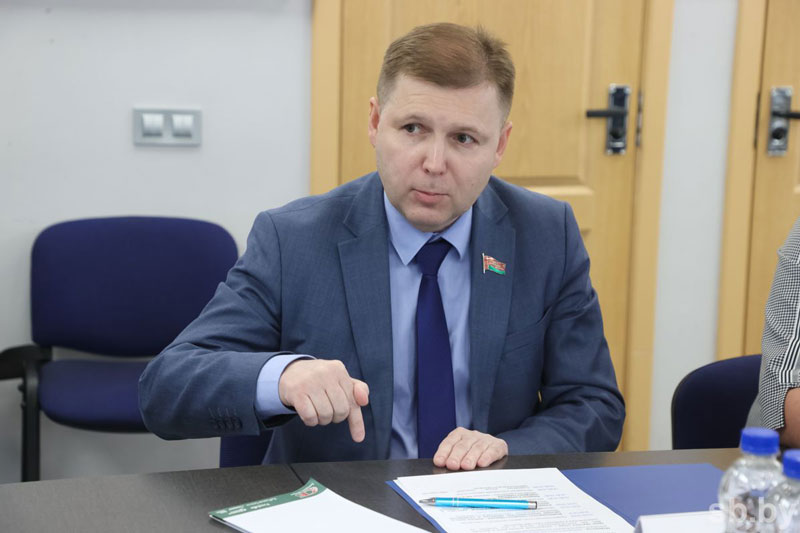
Based on practice
O. Makarov: What qualities should a All-Belarusian People's Assembly delegate have? What is his key task? Should he solve the problems of the people he represents, or make strategic decisions on their behalf? Are the delegates the elite of the country, activists – the most passionary citizens – or do they represent a social section of society, retransmit people's requests?
V. Mitskevich: The delegates of the All-Belarusian People's Assembly are both representatives and activists – and express the worldview of various social groups. The composition of the Assembly is formed from various strata and structures of our society. There are representatives of all three branches of power: the Government (executive), courts (judicial), deputies of all levels (legislative power) are very widely represented. A significant number of delegates from public associations. Definitely, the All-Belarusian People's Assembly delegates are people who take a proactive position, can voice problems, understand life in its various manifestations.
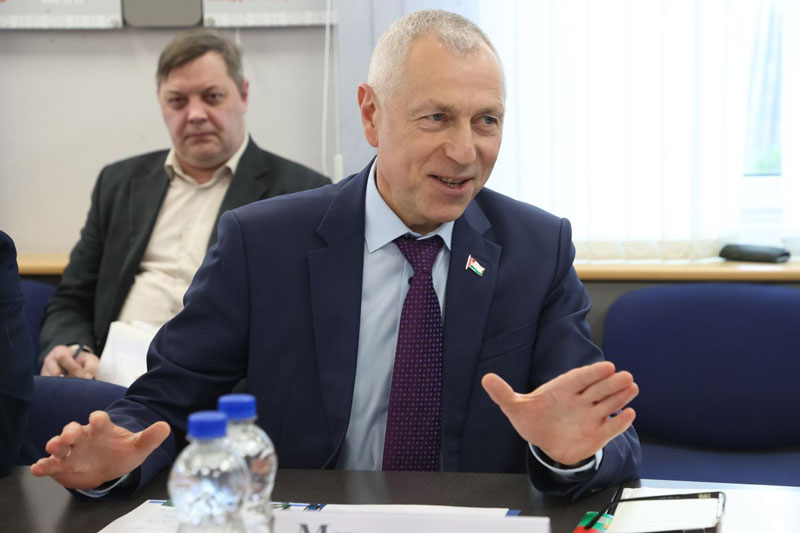
If we talk about people's expectations from the All-Belarusian People's Assembly delegates, they depend on the status of the delegate. By inertia, the delegates (perhaps this is due to the analogy of the deputies election) are nominated people who will defend the interests of the region, solve certain local pressing issues. It is clear that if the delegate is a minister or a representative of another government body, then specific actions are expected from him at his workplace. But we definitely cannot say that a delegate is given a certain mandate.
I think, certain traditions of the activities of this body will be developed in the course of the work of the All-Belarusian People's Assembly. Some aspects have yet to be clarified and formalized. Including based on practical experience. For example, modalities are to be defined what to do if the discussion of a strategic ¬document shows a necessity to make amendments to it, as well as in case consensus is not reached. Many nuances have yet to be worked out.
Juror or Tribune
O. Makarov: By his function, does the delegate of the All-Belarusian People's Assembly acts as a conscientious and positive "juror" who approves or disapproves of the government's proposals? Or is he still closer to the tribune, who puts forward his proposals, convinces the assembly of their expediency, and debates? And what is the difference between a delegate of the All-Belarusian People's Assembly and a deputy of the House of Representatives?
N. Filippova: I think that, depending on their inner beliefs and stances, delegates can act both in the conditional role of jurors and in the role of tribunes. As a member of the Belarusian Women's Union, I participated in the delegate selection conference. These were exemplary democratic elections. Each candidate was represented by their colleagues and was talked about. And the broadest strata of society were represented. There were many representatives of working professions, specialists of enterprises. They know what problems and expectations exist in society.
And these are not just professionals and decent people, but they take a positive civic stance, are ready to be active and have a social function.
And they can defend the interests of their teams and colleagues in public activities on public platforms. These delegates are ordinary people, but the most active. Capable and willing to engage not only in everyday affairs, but also to determine the strategic development of the country.
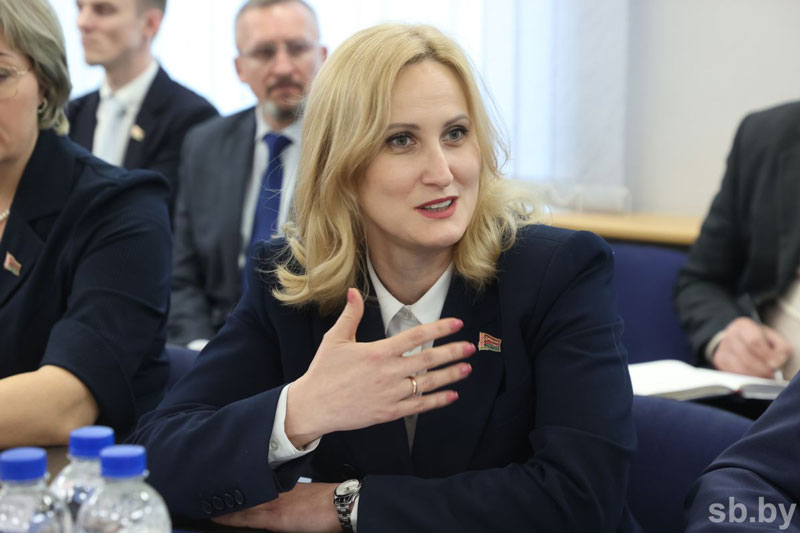
S. Sivets: No doubts, the delegates of the All-Belarusian People's Assembly should implement active information work: explain the decisions of the meeting on the ground, convey public proposals to the Assembly. Deputies also do this. But the the delegates of the All-Belarusian People's Assembly have their own unique functionality. For example, the key task of a deputy is working on legal acts (of course, they communicate with voters, but inside their main legislative functionality). The All-Belarusian People's Assembly delegate has a representative function based on expectations existing in the certain segment of society that sent him. Delegates make strategic decisions, and deputies formalize them in regulatory legal acts in the future.
V. Mitskevich: While forming the All-Belarusian People's Assembly as a constitutional body, there were risks of duplication of the Parliament.
And the President immediately set a task: no one should take up someone else's work. Our priority is to keep this balance, so as not to provoke confusion. The delegates of the All-Belarusian People's Assembly have clear responsibilities and powers — in the Constitution and various legal acts.
And they should adhere to this principle in practice. Maybe, this won't be an easy job sometimes. For example, people see deputies as a representative of the power and therefore address him everyday matters laying within the competence of local authorities. Now we are observing a similar story with delegates. The All-Belarusian People's Assembly is already receiving complaints about everyday troubles. Of course, power exists for people, but each body has its own tasks. This has to be explained to people and delegates – what issues lie within their competence and are a priority.
People's power in action
O. Makarov: The key task of the All-Belarusian People's Assembly – is to act as a stabilizer of political processes or to give additional impetus to social development?
E. Semashko: There is a theory of popular representation, and there is practice. Life can use a variety of models. Classical approaches in their pure form exist only in the scientific literature. We have a legislative and representative body, the Parliament. And the All-Belarusian People's Assembly increases the degree of representation and expands opportunities for citizens to participate in governing the state. The delegates of the All-Belarusian People's Assembly put forward and evaluate proposals not only from the viewpoint of their personal, but public interests as well. No doubts, the All-Belarusian People's Assembly contains a safety mechanism aimed at strengthening civil unity, including against possible contradictions within the mechanism of powers separation.
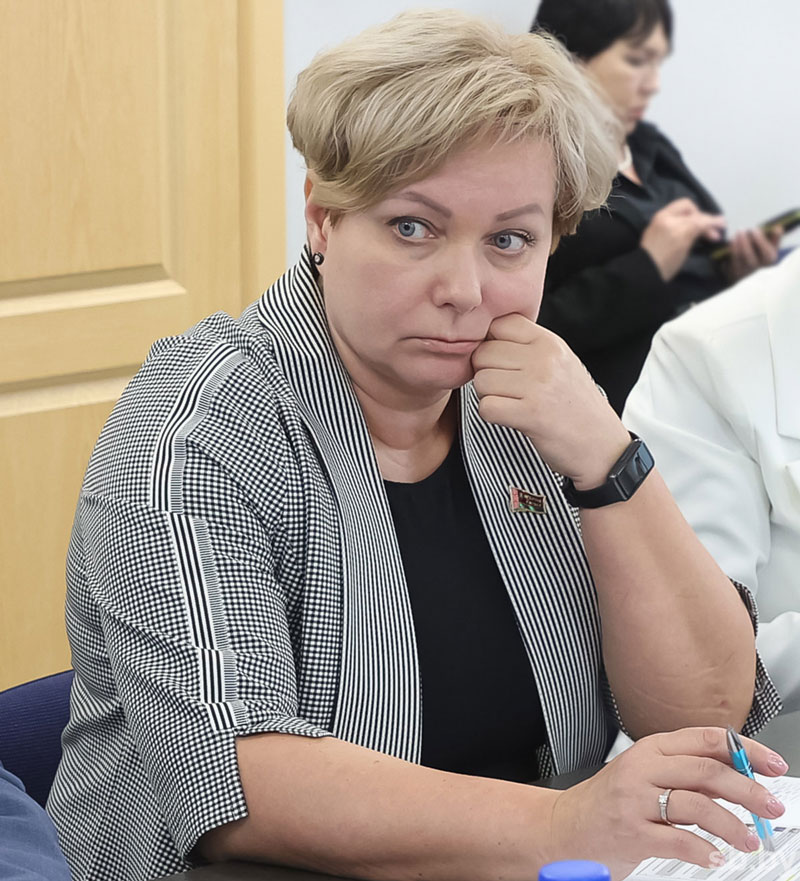
S. Sivets: By its legal status, the All-Belarusian People's Assembly is the highest representative body of the people's power. And this status excludes even the theoretical possibility of the dominance of a particular party, public organization or other formal or informal groups in making strategic decisions.
The All-Belarusian People's Assembly has been created to fill the people's power principle with new content.
And it has both a function for the development of the country in the interests of the whole society and a stabilizer. Now our experience is being closely examined in Kazakhstan and Kyrgyzstan. And I am deeply convinced that with time, national and people's kurultai in these countries will transform from consultative and advisory to constitutional bodies of power.
The effectiveness of the All-Belarusian People's Assembly solutions depends on everyone
O. Makarov: Valery, in your opinion, can we expect an efficiency increase in implementing decisions taken at the All-Belarusian People's Assembly?
V. Mitskevich:
It will be effective only when everyone pours themselves through what they heard at the All-Belarusian People's Assembly and understands: they make a strategic decision, which will then be translated into a specific task that they, their children, and neighbors will have to implement.
But if we treat this formally, say, we voted, we made a decision, but it does not concern us, then it will be difficult to implement it. That is, the All-Belarusian People's Assembly delegate must make specific commitments. Including being able to tell his fellow countrymen: certain conceptual decisions were made at the All-Belarusian People's Assembly, relevant laws will be developed in their elaboration, which must be implemented. Then the work will be effective.
O. Makarov: It is obvious that the basis of statehood is the President. Why do the Institute of the Presidency and the Head of State need All-Belarusian People's Assembly? This is support, informing the public about the tasks…
S. Sivets: We have a people's President. People's because he bases their actions on the opinion of the people. And the All-Belarusian People's Assembly is a concentrated opinion of the people, which unites all social groups and strata. Under All-Belarusian People's Assembly, the delegates will adopt a roadmap for the state development based on powers that are currently assigned to the Assembly. However, now the Belarusian people, taking into account the competence of theAll-Belarusian People's Assembly, together with the President will also be responsible for life in our country.
N. Filippova: The Institute of the Presidency delegated the largest number of powers to the All-Belarusian People's Assembly, which confirms the importance of the latter. However, there is also a self-limitation of power here, related to other functions of the All-Belarusian People's Assembly. Not only the approval of socio-economic development programs, the approval of the main directions of domestic and foreign policy, but also the ability to cancel legal acts and other decisions of state bodies and officials that contradict the interests of national security.
Presidium of the Assembly – the whole range of delegates
V. Starichenok: The main intrigue now is the Presidium of the All-Belarusian People's Assembly. It would not be wrong to say that the public does not know the procedure for selecting the Presidium of the All-Belarusian People's Assembly. If we speak about the people's representation, will representatives of civil society and local Councils of Deputies be included in the Presidium? Will the Presidium reflect the composition of the All-Belarusian People's Assembly?
V. Mitskevich:
Ideally, of course, the Presidium of the All-Belarusian People's Assembly should reflect the entire spectrum of delegates, since it is impossible to leave any sphere without its representatives. But the composition of the Presidium will be defined by the delegates. This implies a secret ballot mechanism.
The Law "On the All-Belarusian People's Assembly" enshrines the maximum number of the Presidium – not more than 15 people. But we will know its composition only once its members are elected.
It is also important to understand that the Presidium has powers. This is a working body that will make decisions within its competence in between meetings. It's not easy to convene 1,200 people once a month. Therefore, everyday functions will be implemented by the Presidium. There are some powers there that cannot be delayed. For example, suspending the powers of a judge.
O. Makarov:
In this case, is there a concept of how to work with the composition, because the All-Belarusian People's Assembly meets once a year? Will it be a stable composition or, on the contrary, will we try to achieve the greatest representativeness? Will these be socio-political activists?
E. Semashko: From the state’s personnel policy viewpoint, it will be good if, thanks to the All-Belarusian People's Assembly, the number of professional managers expands. But still, the VII All-Belarusian People's Assembly will be held in a new status – the highest representative body of the people's power. In this case, maximum stability of the composition would be useful, but it is impossible to stay completely unchanged!
V. Mitskevich: Within one term, the composition will be relatively stable.
N. Filippova: It should be borne in mind that the appointed delegates, of course, will change. The powers of civil society representatives elected to the All-Belarusian People's Assembly may be terminated prematurely. For example, due to termination of membership in a public association being a subject of civil society. The Electoral Code and the charters of the subjects of civil society provide for the institution of electing delegates of the All-Belarusian People's Assembly instead of those who left if these subjects make the appropriate decision.
In addition, since the delegates of the All-Belarusian People's Assembly are representatives of the executive and judicial authorities, the composition of the Assembly may change as a result of personnel decisions. At the same time, meetings of the All-Belarusian People's Assembly are held at least once a year, and an extraordinary meeting of the Assembly may also be convened.
Therefore, it is impossible to exclude changes in the All-Belarusian People's Assembly composition.
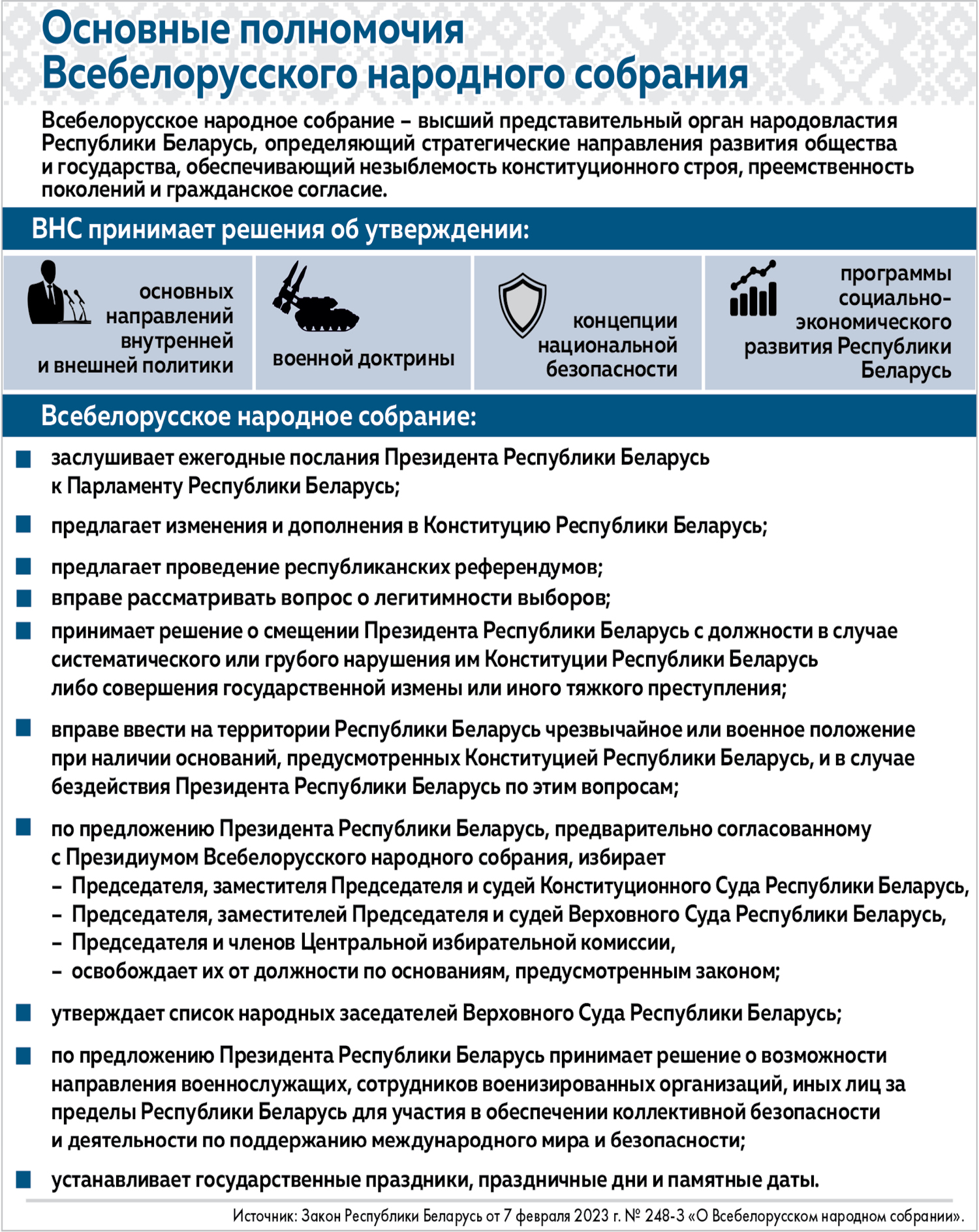
The format of delegates' interaction with the public
S. Aleinikova: If we summarize the BISR research in expectations of society from representative bodies, then we can point out the following request – the feedback. What will be the All-Belarusian People's Assembly feedback with people? Is it possible to provide a platform, for example, a digital one, for people to communicate with the Assembly's delegates, where they could ask questions and receive answers?
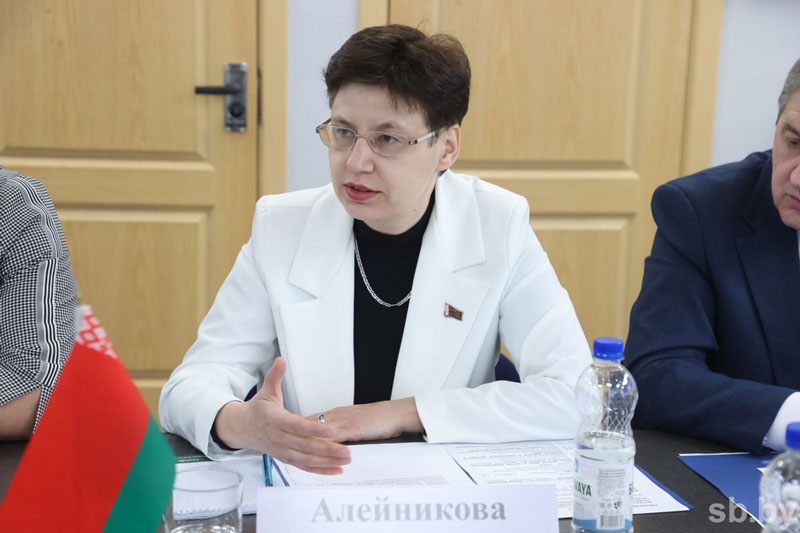
S. Sivets: We have a rather broad range of communications. Clear forms of interaction are set by the Law "On Appeals of Citizens and Legal Entities", the Law "On the Foundations of Civil Society". You can apply through public associations, deputies of all levels, receptions of citizens. That is, no one will experience a lack of opportunities to convey this or that problem to the delegate of the All-Belarusian People's Assembly.
O. Lazorkina: We probably need to formulate what questions they can apply so that their range does not come to those, for example, related only to the housing and utilities sector.
S. Sivets:
The questions arise from the status of the All-Belarusian People's Assembly: the body that defines the strategic directions of the society and state development ensuring the inviolability of the constitutional system, the continuity of generations and civil harmony.
These are the boundaries to define the range of tasks of the All-Belarusian People's Assembly.
V. Mitskevich: The question still is, whether mechanisms for interaction between people and delegates of the All-Belarusian People's Assembly be created? How it appears at first: the emphasis will be on communication on the ground. For example, there are delegates from rural areas, they should communicate with those who nominated them, with whom they live in the same locality, work at the same enterprise.
Ideally, it would be necessary to create, and we should think about it, a platform for delegates to interact with the public. And, of course, we need to determine the list of questions to be discussed at such platforms. This format is necessary for making strategic decisions. It would be unwise to turn interaction channel between the delegates of the All-Belarusian People's Assembly and the population into a book of complaints.
N. Filippova:
It is more important to create a channel to discuss issues proposed for submission to the Assembly. That is, to highlight the subjects prior to the All-Belarusian People's Assembly takes place. To convey to every resident of the country the decisions made at the All-Belarusian People's Assembly so that everyone understands this strategy.
The channel should operate on the principle of public discussion of regulatory legal acts. This is how the format should be, same as the electronic platform. But in order to talk about things that will be submitted for discussion at the All-Belarusian People's Assembly.
V. Mitskevich: Let's assume we have come to a common decision. Some time ago, discussion of regulatory legal acts, collection of proposals on legislation improvement started on the ¬-pravo.by platform. In the beginning, ¬people did not participate much, now there is quite an active discussion there. This can be taken as an analogue.
The tasks of the All-Belarusian People's Assembly are peace, security, and well-being
O. Lazorkina: To sum up, I want to focus on political culture. Today, we have discussed an important question: why do we need an All-Belarusian People's Assembly? And we came to the conclusion — to build a modern and effective state.
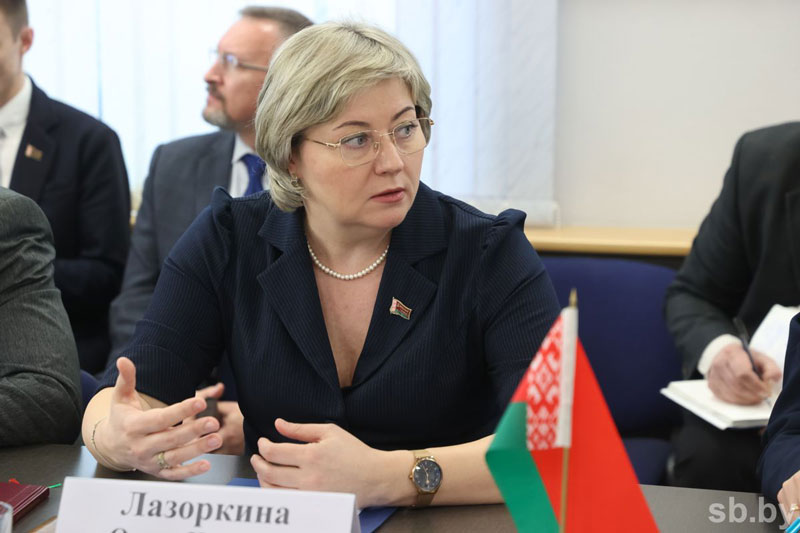
But I tried to aggregate the tasks that will be solved within the framework of the All-Belarusian People's Assembly based on the experience of similar structures in other countries. Of course, we have our own specifics, but I will briefly outline a certain set of tasks.
Forming a new quality of trust in society is a priority task. Within the All-Belarusian People's Assembly, it is supposed to build its foundations not only on the traditional principle of justice, but to a greater extent responsibility for the adopted strategic course.
The high dynamics of the external and internal processes of a modern state involves building the skills of political communication in a new reality. We are talking about consolidating the principles of a culture of participation, which will ensure problems solution within the law, and not on the streets.
Today, the task of finding mechanisms to give impetus to the implementation of decisions is more urgent than ever. Joint liability can act as such a mechanism. Its consolidation in the political process implies the formation of a new form of political life in the country.
The horizontal model of political communication, which is assumed under the All-Belarusian People's Assembly, will be aimed at crystallizing a social contract that reflects new political realities, takes into account external factors, and meets the needs of society.
The result of solving these tasks is the laying of a new foundation for the political culture of Belarus, which will provide the full range of the "effective state" concept.
S. Sivets:
As a result, we will obtain what is fundamental for any normal healthy society: peace, physical security, confidence in the future and the well-being of the people who live in this society. This will be the fundamental criterion for the effectiveness of the work of the All-Belarusian People's Assembly.
And if we live in an environment where all this will be provided, then the All-Belarusian People's Assembly will take place as a constitutional body of power.
HOW, ACCORDING TO THE BISR, IS THE ALL-BELARUSIAN PEOPLE'S ASSEMBLY PERCEIVED IN THE MEDIA?
Based on the information and analytical system "Infometrica", about 5,000 materials on the All-Belarusian People's Assembly were published in 2024, on the following subjects: nomination of candidates for delegates, meetings on the Assembly preparation, signing of a decree on the establishment of the secretariat, organizing committees for the preparation of candidates nomination. The top interst also included the news about the approval by the President of the badge of the delegate of the All-Belarusian People's Assembly. According to BISR analyst Olga Lazorkina, the organizational mechanism of the All-Belarusian People's Assembly also attracts great media attention. At the same time, analysts do not see a media topic reflecting how the Meeting will function directly.
WHAT ARE THE EXPECTATIONS OF THE SOCIETY FROM THE ALL-BELARUSIAN PEOPLE'S ASSEMBLY?
During the round table, BISR analyst Svetlana Aleinikova spoke about results of studying the ideas of the Belarusian society about the All-Belarusian People's Assembly. In December 2023, a study was conducted at the BISR instruction which showed that citizens expect the All-Belarusian People's Assembly to develop strategic guidelines for the development of the country, expand opportunities for involvement in the discussion of decisions significant for the country and the "society-state" communication.
